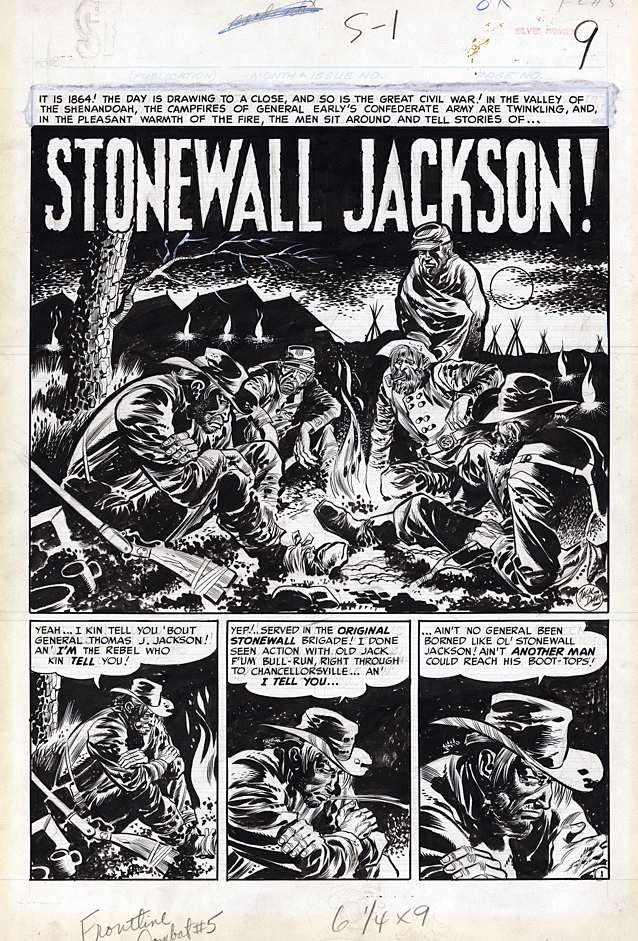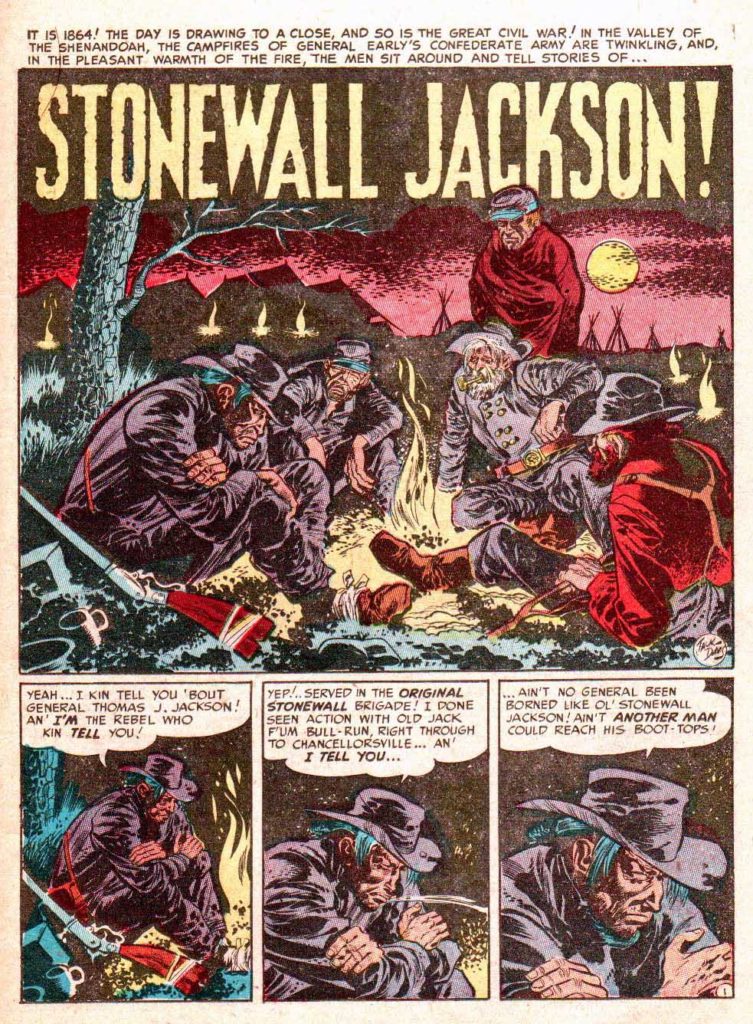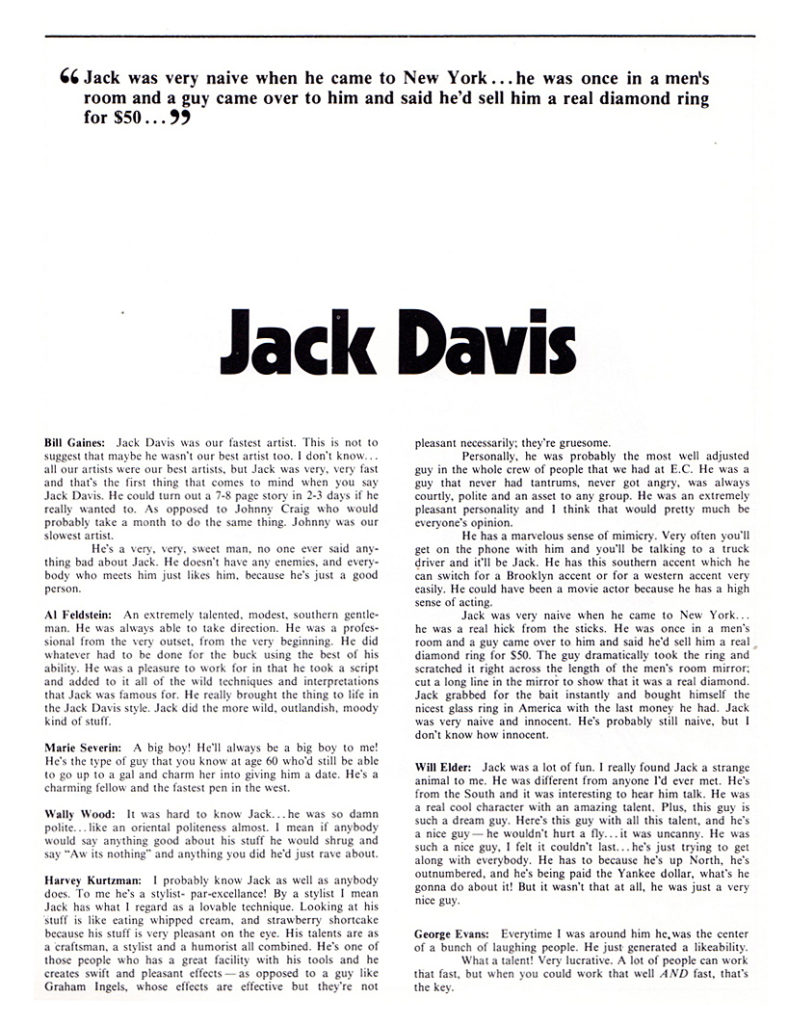Frontline Combat #5, March 1952

Concluding (for now) our 60th anniversary celebration of the legendary EC “New Trend” comics with another classic piece of great art from the legendary Jack Davis.
“We got into the Civil War thing. It was a favorite project of mine. We were hot to do the story of the Civil War from front to back.”
— Harvey Kurtzman, 1972 EC fan convention panel.
War stories were among EC’s many strengths, and many of those, thanks to Harvey Kurtzman’s obsessive editorial attention, were accurately based on historical events.
“Stonewall Jackson!” is a perfect example. Jackson, a brilliant Confederate military tactician, was accidentally shot by his own men in a nighttime battle. This Kurtzman story retells that tale through the voice of the supposed soldier who shot him.
Lighting is an illusion created by a creative combination of black ink and negative space. On this splash, one of my personal favorites, Davis indeed creates a beautiful illusion of campfire light. There is no actual illumination here of course, but thanks to the well-crafted art, our mind’s eye sees it.
The storytelling is equally effective. The camera work closes in on one figure through multiple panels — we instinctively know that this is our narrator and his story, even without reading the dialogue.
Kurtzman and Davis were a terrific team.
All our stories really protested war. I don’t think we thought war was very nice generally. The whole mood of our stories was that war isn’t a good thing. You get killed. That’s the way war is; you get killed suddenly for no reason. — Harvey Kurtzman, 1972 EC fan convention panel.
In 2011, Davis told The Wall Street Journal about his early career and his breakthrough with EC:
I was about ready to give up, go home to Georgia and be either a forest ranger or a farmer. But I went down to Lafayette St., up in an old rickety elevator and through a glass door to Entertaining Comics where Al Feldstein and Bill Gaines were putting out horror comic books. They looked at my work and it was horrible and they gave me a job right away!
Every time you went in to see Bill Gaines, he would write you a check when you brought in a story. You didn’t have to put in a bill or anything. I was very, very hungry and I was thinking about getting married. So I kept the road pretty hot between home and Canal Street. I would go in for that almighty check, go home and do the work, bring it in and get another check and pick up another story. [Edit: the actual cross street to Lafayette was Spring Street, not Canal.]





